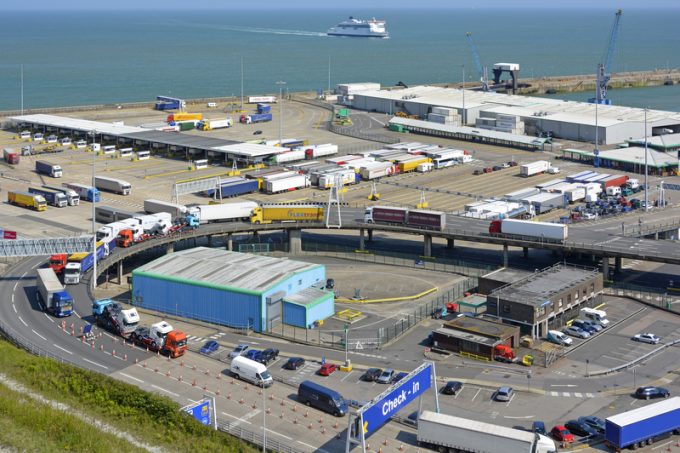Ripples from IT outage could spread through supply chains 'for weeks'
The disruption and delays to air cargo services due to the global IT outage has ...
TFII: SOLID AS USUALMAERSK: WEAKENINGF: FALLING OFF A CLIFFAAPL: 'BOTTLENECK IN MAINLAND CHINA'AAPL: CHINA TRENDSDHL: GROWTH CAPEXR: ANOTHER SOLID DELIVERYMFT: HERE COMES THE FALLDSV: LOOK AT SCHENKER PERFORMANCEUPS: A WAVE OF DOWNGRADES DSV: BARGAIN BINKNX: EARNINGS OUTODFL: RISING AND FALLING AND THEN RISING
TFII: SOLID AS USUALMAERSK: WEAKENINGF: FALLING OFF A CLIFFAAPL: 'BOTTLENECK IN MAINLAND CHINA'AAPL: CHINA TRENDSDHL: GROWTH CAPEXR: ANOTHER SOLID DELIVERYMFT: HERE COMES THE FALLDSV: LOOK AT SCHENKER PERFORMANCEUPS: A WAVE OF DOWNGRADES DSV: BARGAIN BINKNX: EARNINGS OUTODFL: RISING AND FALLING AND THEN RISING

A no-deal Brexit could result in a decline in trade through the port of Dover of as much as £1bn, the UK’s Conservative Party was told at its annual conference yesterday.
Speaking at a fringe event, transport minister George Freeman told delegates current government assumptions on the immediate aftermath of a no-deal Brexit were that traffic transiting Dover – the largest gateway for UK-continental freight traffic – would halve for at least three months.
Dover Harbour Board chief executive Doug Bannister told delegates this could amount to £1bn ($1.23bn) a day.
“That’s how critical it is. If there’s a no-deal Brexit, it’s not going to be OK. But people are doing all they can to ensure Britain keeps trading,” UK newspaper The Guardian quoted Mr Bannister as saying.
However, in a prepared statement, Mr Bannister insisted that the port of Dover had done all it could to prepare for the UK’s departure from the European Union.
“Dover is a fast-paced operation unlike anywhere else and has been dubbed Britain’s just-in-time trade conveyor belt. But it is Ireland’s too, with around 40% of Irish exports to the EU travelling via Dover. Business as usual means Dover as usual, and that is what we have been working on.
“Alongside ongoing major investment in our operational capacity, we’ve prepared for Brexit, working hard to ensure our assets are ready, critical spare parts stocked and the right level of resources are in place,” he said.
The port of Dover annually handles £122bn by value, or 17% of the UK’s trade, in goods on the shortest sea crossing between the UK and France; 120 ferry movements a day with a fleet of 12 ferries carrying up to 110 miles of lorries – more than all other UK ports combined.
Sharing a stage with Mr Bannister was Freight Transport Association (FTA) deputy chief executive James Hookham, who reiterated warnings that hauliers on return trips through Dover and Calais should be prepared for delays of up to five days, and needed to begin thinking about insurance cover.
However, according to The Guardian, he added that while the FTA did not expect “wholesale meltdown”, UK consumers should be prepared for “changes to what people can expect to see in the shops, undoubtedly”.
He added: “The biggest unknown in our book is what the French and EU will demand, in terms of British goods imported into the EU,” he said.
He also said that the full impact of a no-deal Brexit on 31 October would not be seen until 4 November, due to public holidays in much of Europe.
Comment on this article